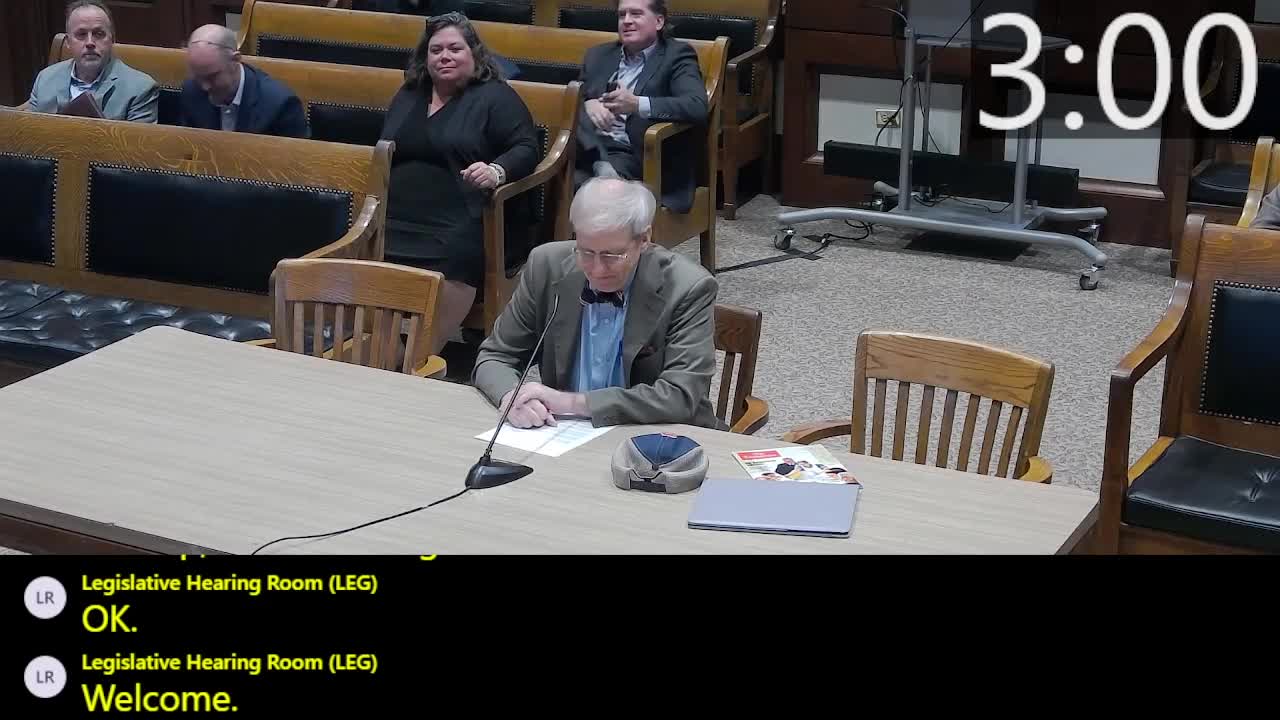Advocates press committee for excise tax on guns and ammunition to fund violence-prevention programs
September 29, 2025 | 2025 Legislature MA, Massachusetts
This article was created by AI summarizing key points discussed. AI makes mistakes, so for full details and context, please refer to the video of the full meeting. Please report any errors so we can fix them. Report an error »

Advocates for an excise tax on firearms and ammunition urged the Joint Committee on Revenue to favorably report H.3082, which would establish a public‑health and safety fund supported by a wholesale excise on firearms and ammunition.
"This legislation would establish the public health and safety fund ensuring that revenue from the sale of firearms and ammunition is directed towards violence prevention, research, and survivor services," Ruth Safran, CEO of the Massachusetts Coalition to Prevent Gun Violence, said in testimony.
Representatives of community‑based violence‑intervention groups described program outcomes and the costs of gun injury care. Dwight Robson of Roca said the group's intervention work reduces arrests and incarceration among engaged youth and that hospital treatment costs for firearm injuries are substantial: "A recent Northwestern University study found that from 2016 to 2021, US hospitals incurred $7.7 billion in initial treatment costs for firearm injuries," he said, citing research and arguing dedicated funding is needed.
Supporters pointed to California's excise experience and municipal examples and argued federal funding cuts increase the need for state revenue. "The excise tax created by this bill is both reasonable and modest," Kim Gutierrez of the Giffords Center testified, and she cited California's program as generating nearly $60 million annually.
Opponents included sportsmen and hunting groups. Christopher Ragosta of the Congressional Sportsman's Foundation and Tom Hurley of the Massachusetts Airport Management Association (speaking on aviation tax issues in a separate panel) cautioned against imposing burdens on lawful hunters and anglers and warned of potential effects on conservation funding and outdoor programs. Ragosta said federal Pittman‑Robertson and excise funding already support wildlife restoration and warned that new state levies could jeopardize that support.
Committee members asked about earmarking, program eligibility and parallels with tobacco and cannabis excise‑funding models. Supporters emphasized the bill's targeted revenue use and advocates said a dedicated fund would protect resources from being diverted to the general fund. No committee vote was taken at the hearing.
Witnesses were invited to submit additional written data and impact estimates to the committee.
"This legislation would establish the public health and safety fund ensuring that revenue from the sale of firearms and ammunition is directed towards violence prevention, research, and survivor services," Ruth Safran, CEO of the Massachusetts Coalition to Prevent Gun Violence, said in testimony.
Representatives of community‑based violence‑intervention groups described program outcomes and the costs of gun injury care. Dwight Robson of Roca said the group's intervention work reduces arrests and incarceration among engaged youth and that hospital treatment costs for firearm injuries are substantial: "A recent Northwestern University study found that from 2016 to 2021, US hospitals incurred $7.7 billion in initial treatment costs for firearm injuries," he said, citing research and arguing dedicated funding is needed.
Supporters pointed to California's excise experience and municipal examples and argued federal funding cuts increase the need for state revenue. "The excise tax created by this bill is both reasonable and modest," Kim Gutierrez of the Giffords Center testified, and she cited California's program as generating nearly $60 million annually.
Opponents included sportsmen and hunting groups. Christopher Ragosta of the Congressional Sportsman's Foundation and Tom Hurley of the Massachusetts Airport Management Association (speaking on aviation tax issues in a separate panel) cautioned against imposing burdens on lawful hunters and anglers and warned of potential effects on conservation funding and outdoor programs. Ragosta said federal Pittman‑Robertson and excise funding already support wildlife restoration and warned that new state levies could jeopardize that support.
Committee members asked about earmarking, program eligibility and parallels with tobacco and cannabis excise‑funding models. Supporters emphasized the bill's targeted revenue use and advocates said a dedicated fund would protect resources from being diverted to the general fund. No committee vote was taken at the hearing.
Witnesses were invited to submit additional written data and impact estimates to the committee.
View full meeting
This article is based on a recent meeting—watch the full video and explore the complete transcript for deeper insights into the discussion.
View full meeting
